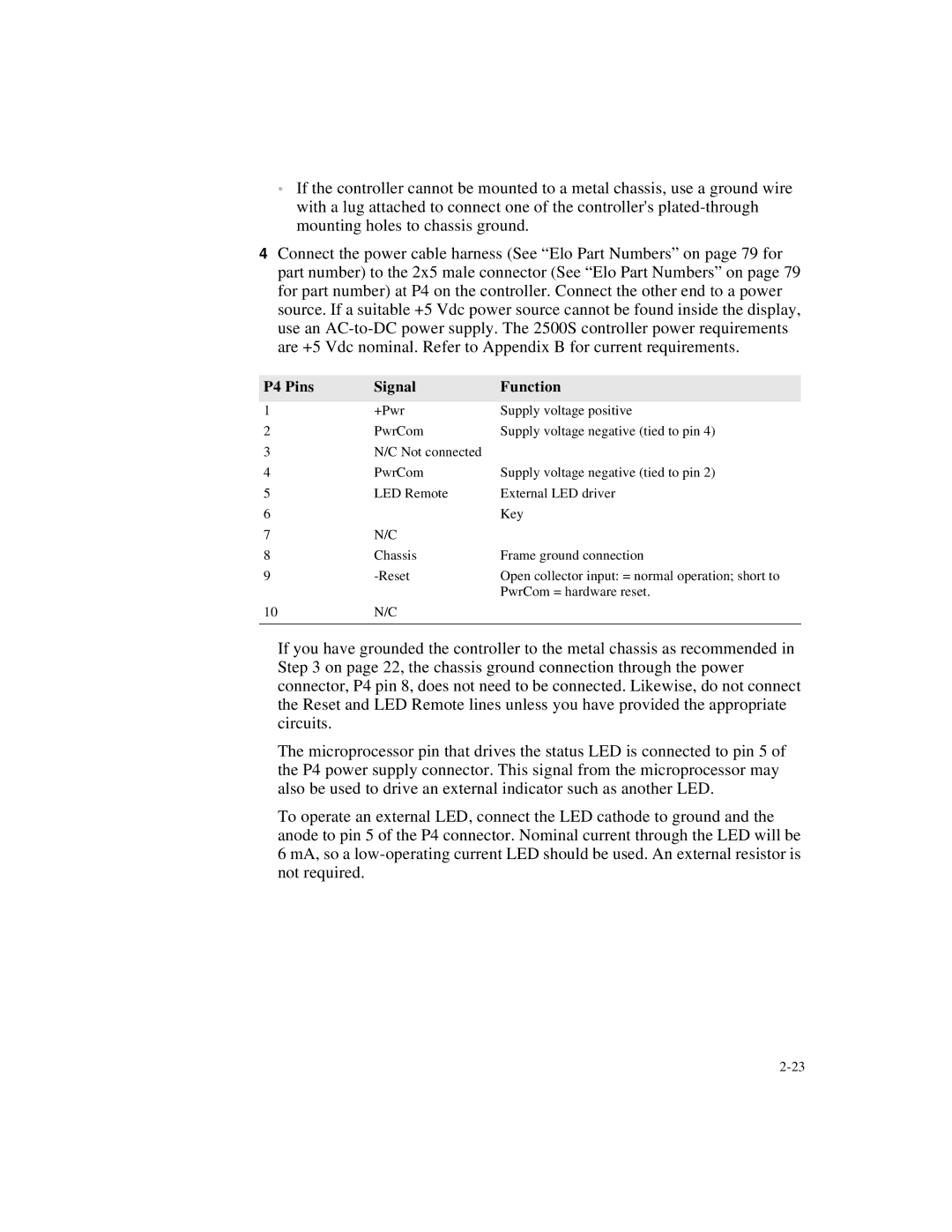•If the controller cannot be mounted to a metal chassis, use a ground wire with a lug attached to connect one of the controller's
4Connect the power cable harness (See “Elo Part Numbers” on page 79 for part number) to the 2x5 male connector (See “Elo Part Numbers” on page 79 for part number) at P4 on the controller. Connect the other end to a power source. If a suitable +5 Vdc power source cannot be found inside the display, use an
P4 Pins | Signal | Function |
|
|
|
1 | +Pwr | Supply voltage positive |
2 | PwrCom | Supply voltage negative (tied to pin 4) |
3 | N/C Not connected |
|
4 | PwrCom | Supply voltage negative (tied to pin 2) |
5 | LED Remote | External LED driver |
6 |
| Key |
7 | N/C |
|
8 | Chassis | Frame ground connection |
9 | Open collector input: = normal operation; short to | |
|
| PwrCom = hardware reset. |
10 | N/C |
|
|
|
|
If you have grounded the controller to the metal chassis as recommended in Step 3 on page 22, the chassis ground connection through the power connector, P4 pin 8, does not need to be connected. Likewise, do not connect the Reset and LED Remote lines unless you have provided the appropriate circuits.
The microprocessor pin that drives the status LED is connected to pin 5 of the P4 power supply connector. This signal from the microprocessor may also be used to drive an external indicator such as another LED.
To operate an external LED, connect the LED cathode to ground and the anode to pin 5 of the P4 connector. Nominal current through the LED will be 6 mA, so a
